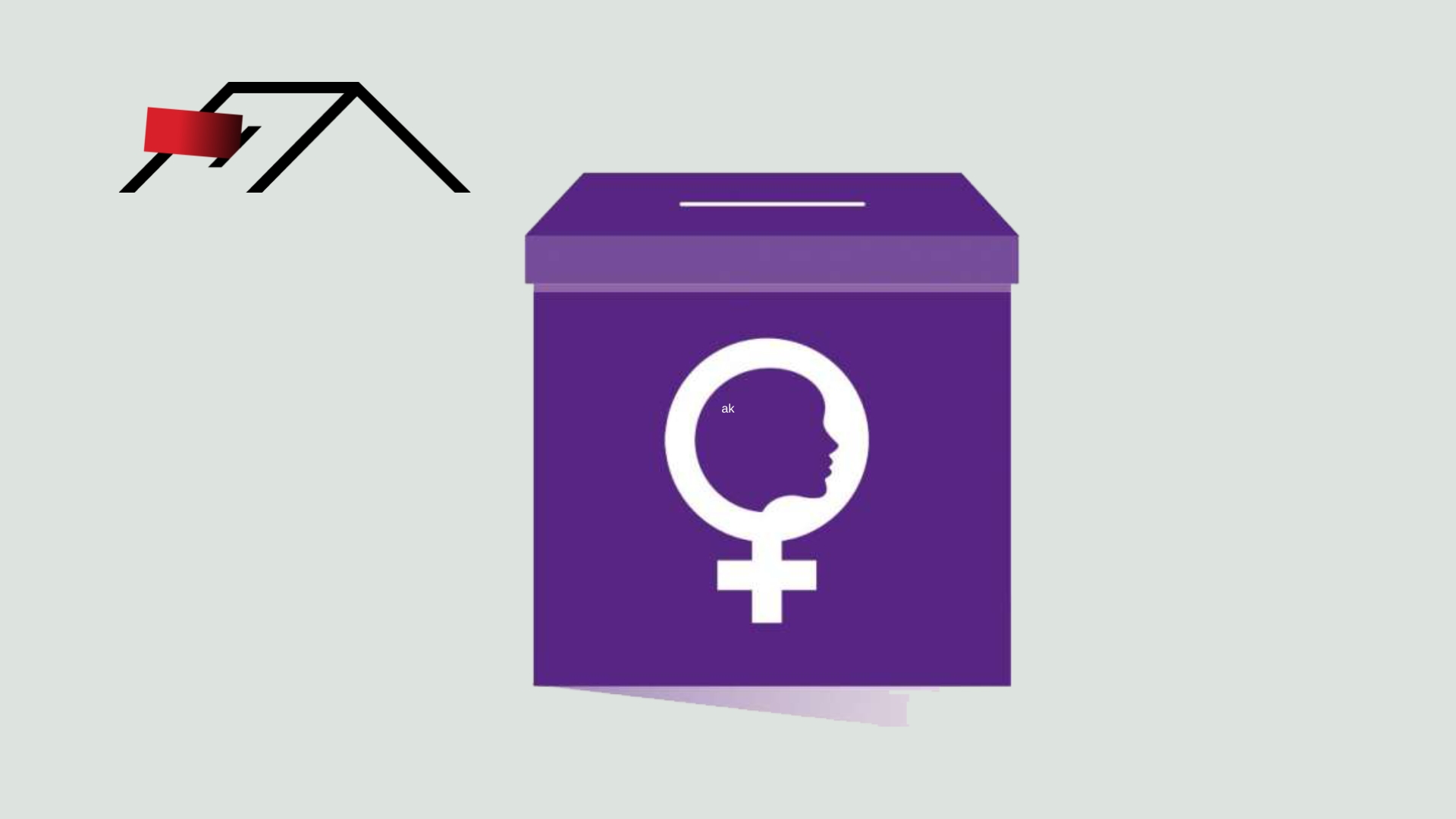On the edge of Tunas Bangsa Park, Faculty of Social and Political Sciences (FISIP), University of Indonesia (UI), right in front of Building F, Juwono Sudarsono Auditorium, Stevi sat on one of the green-roofed benches called “cubicles” by FISIP UI students. When met by the UI Student Voice on Thursday afternoon (15/01), the student majoring in political science class 20 immediately greeted him with a warm smile. That day, Stevi told me honestly how he decided to enter the world of politics with strong determination, even though he had previously had doubts.
During his journey, he experienced the same dilemma. Precisely when he had to choose a political science major as his educational path to enter the world of politics as his career plan.
“Honestly, before I decided to join practical politics, I had quite big fears,” said Stevi, starting his story.
He emphasized the root of his main dilemma: that female politicians are often objects of sexuality, both in their appearance and their position. For example, some male politicians even deliberately look for physically attractive partners to gain votes, so that in this case, women are used as “get voters” by prospective politicians ahead of elections.
“It is clear that it is very difficult to change the patriarchal culture in the world of politics. Even in political organizations, sometimes even in college classes, we can see that more men ask questions. “Here it can be seen that the tradition of speaking is more owned by men, so perhaps many women are already insecure,” he said in a concerned tone.
This tokenism does not only apply to the choice of an official’s wife. Even though Indonesia already has official regulations for women’s political representation, she witnessed how in the field, women who are nominated are often used as mere tokens to fulfill quota requirements.
“Often political parties enter women into politics only to fulfill administrative requirements. “These women are sometimes only put forward in electoral districts that are not party-based, so if they run, it is just a suicide mission; they definitely won’t get elected,” explained Stevi.
Stevi gave an example: “For example, party A is strong in West Java but weak in Central Java. He was nominated in Central Java. What’s important is that the party nominates 30% of women; whether he wins or not, which electoral district he is nominated in, that is the authority of the party chairman, right?”
As a result, Stevi concluded that this illustrates that political parties in Indonesia do not yet have a commitment to properly cadre their female members. Especially if the woman is still young, she often hears unwritten rules regarding ‘seniority’ in nominations.
“Even if it’s a woman, her character is okay; she’s already known in her electoral district, but she’s not being promoted because she’s still young and not senior, because the party prioritizes seniors first, so they don’t’step over their seniors’,” explained Stevi.
Women who are interested in pursuing a career in politics like Stevi may not only face challenges externally but also internally. For example, as a woman, her family is often confused about Stevi’s career choice. This concern is related to the female gender, which is synonymous with the domestic role, which seems to prefer taking care of the household rather than pursuing a career.
Not just an Indonesian problem
Stevi’s anxiety as a young woman who is interested in a career in politics is certainly very reasonable. For centuries, patriarchal culture has locked women’s access to the public sphere, especially in strategic positions such as politics. Various social research shows the importance of women’s political participation on important issues such as climate change, racial justice, gender equality, and sustainable development. Women are strong supporters of intergenerational collaboration and accountability policies towards a more just, sustainable, and equal world. Unfortunately, to date, data shows that women’s voices are still underrepresented at every level of decision-making throughout the world.
UN Women data as of January 1, 2023, shows that of the 195 countries in the world, only 17 have a female head of state, only 19 have a female head of government, and only 14 countries have 50% or more women in their cabinet. In other words, around 90% of the highest policy-making positions in countries around the world are dominated by men. Under these conditions, gender equality in the world of politics may not be achieved in another 130 years.
Even though it is progressing very slowly, the level of women’s representation in national parliaments globally has increased gradually from 15 percent in 2002 to 19.8 percent in 2012. The question is, why is the rate of women’s participation in politics moving slowly?
History records how difficult it was for women to obtain voting rights. The world’s first elections were held in Athens, Greece, in 508–507 BC. At that time, women were excluded from general elections because society considered women’s brains to not have perfect reasoning to make political choices. Even in the country that is considered the most democratic, the United States, women only got the right to vote after 144 years of American independence.
As late as 1952, the United Nations Convention on the Political Rights of Women stipulated that “women have the right to vote in all elections on the same terms as men, without any discrimination.” Therefore, it is not surprising why, until now, women’s political participation has been minimal. Never mind running for office; just to get the right to vote, it takes more than a hundred years of struggle.
In Indonesia itself, women have been given the right to vote since the first election in 1955. The results of the recapitulation of the Permanent Voters List (DPT) show that the number of Indonesian women voters in the 2019 general election was higher than that of men. Of the total 187 million voters, there are 92.9 million female voters.
However, this large number of female voters is not matched by a proportional number of political representatives. Efforts to increase women’s political representation in Indonesia have been encouraged since 2003 with the birth of various legal regulations that encourage equal positions between men and women in socio-political organizations and policy formulation bodies, starting from guaranteeing equal rights to vote and be elected to occupying bureaucratic positions. .
In addition to the rule of implementing a minimum 30% women’s candidacy quota for each political party, a “zipper system” is also implemented. This provision stipulates that for every three prospective candidates in the legislative or executive body, there is at least one woman who gets a serial number, namely in the first three serial numbers, not below that serial number. However, these regulations cannot guarantee women’s political representation.
Not Enough with Affirmations
This was confirmed by UI philosophy lecturer and feminist academic at Jurnal Perempuan, Ikhaputri Widiantini. This woman, who is usually called Upi, said that the various legal regulations that were made would not necessarily increase the number of women or increase the number of pro-women policies.
“Indonesia does have various affirmation policies, such as a 30% quota for women, but sometimes people feel that affirmation policies alone are enough. In reality, many parties nominate women only to fulfill administrative requirements. “So tokenism results; the important thing is that there are women,” said Upi on 15/03.
“Okay, there is participation, but is the opinion or voice of women in it considered?” Upi asked.
An Indonesian female politician, Tsamara Amany, said something similar. The chairman of the PSI DPP for 2017–2022 sees that the party system and culture in Indonesia are still very masculine. Invitations to women to enter politics appear to be mere lip service.
“Eh, there’s a sister, isn’t there?” Tsamara said, imitating the cadre formation and nomination of women in political parties. This is often just to meet the affirmation quota on Wednesday (15/1).
Women involve themselves in politics with minimal capital. This situation is the reason that only a few women can win the right to enter parliament or become regional heads.
“In the end, only a few of these women have the ability to fight against more reliable and senior politicians,” added Tsamara.
Following this irony, Tsamara emphasized that not many parties have taken the initiative to seriously empower their female members. In general, it’s like that, especially towards women.
“Cerderization is not serious yet. “We have to admit this,” explained Tsamara. []
DIAN AMALIA ARIANI
Student at the Faculty of Social and Political Sciences, University of Indonesia (FISIP UI), 2019
Chief Editor of the Suma UI Autonomous Body
 Rumah Pemilu Indonesia Election Portal
Rumah Pemilu Indonesia Election Portal




